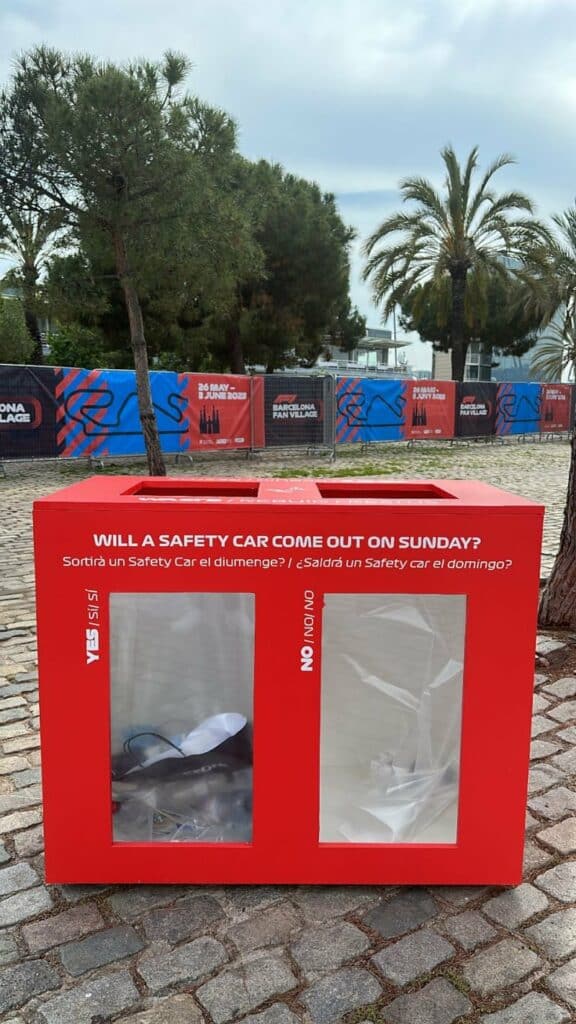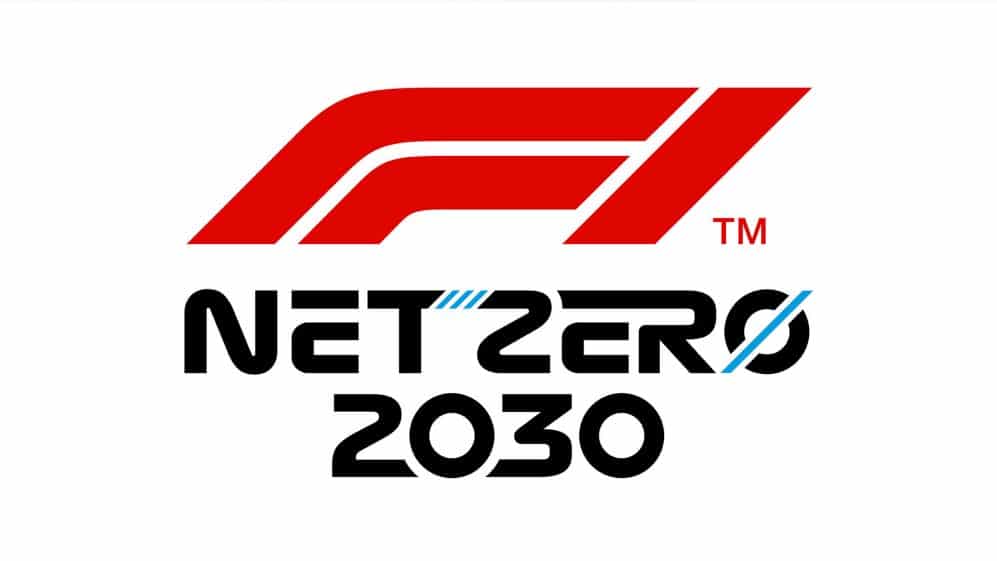The future of sustainable motorsport is eclectic and in reading this week’s edition of the Sustainable Motorsport Roundup, you will understand why.
From hydrogen powered prototype racers, biofuel-powered Rally Raid race cars, electric touring cars to an incredible tribute to the iconic Lancia Delta, it just goes to show that the technologies powering the future of motorsport are varied indeed.
I also feature the latest FIA sustainability report, news on F1’s progress towards Net Zero and the green technologies used in IndyCar.
All this plus a brilliant way that Spanish Grand Prix organizers encouraged fans to recycle and much more in this week’s packed Sustainable Motorsport Roundup on Motorsport Prospects. Its green news racers can use.
Sustainable Motorsport News
FIA Sustainable Motorsport News and Developments

The FIA has published its 2023 FIA Environmental Report in a fully digital user-friendly micro-site format.
The second edition of the report looks at the 2022 results and the progress made towards the objectives set for the next target date of 2025 in the FIA Environmental Strategy 2020-2030. It gives a full insight on the FIA Environmental performance and the measures it takes to reach its goals across its own operations, its membership, its championships and its network.
The 2022 results – because they were not affected by the impact of the COVID-19 pandemic – are the first fully representative ones since the adoption of the Strategy in December 2020.
FIA Environment and Sustainability Commission President Felipe Calderón said: “In the context of the urgent need of rapid and significant CO2 emissions reduction, our fundamental objectives have not lost any of their relevance. We want to enhance efforts in encouraging and supporting all our stakeholders – championships, Motor Sport and Mobility Clubs, drivers, fans, sponsors, suppliers – in their climate transition. To this end, the FIA will go further using its global outreach to strengthen its climate leadership in sport and embark motor sport and mobility ecosystems into a low carbon future.”
The FIA has also published an insight into how the FIA is helping to tackle plastic pollution from tyres (tires) through research and regulation.
“The FIA has always been committed to promoting sustainable mobility and motor sport and in this regard the FIA has implemented a sustainable energies roadmap with objectives tailored to each championship,” says Xavier Mestelan Pinon, FIA Technical Director, Technical Operations and R&D. “We have a 360-degree approach to this and beyond powertrain solutions we therefore address also subjects such as logistics, the use of materials in general – especially carbon – as well as emissions managed by the production of components and their use. Tyres naturally fall within this sphere, and we are committed to finding innovative solutions and to reducing the environmental impact of tyres while maintaining the performance essential for racing.”
As part of the process of reviewing potential Formula 1 teams, sustainability is an important part of the new team criteria.
“For the first time ever, any candidate would be required to address how it would manage the sustainability challenge and how it plans to achieve a net-zero CO2 impact by 2030. Any prospective F1 team would also need to illustrate how they intend to achieve a positive societal impact through its participation in the sport. This would help meet the mutual aims of the FIA and Formula One Management.”
The FIA has released the invitation to tender to be the engine supplier for its Formula 3 championship through the 2025 to 2027 seasons.
“The chosen supplier is “invited to adhere to the FIA Envirionmental Strategy and to obtain the FIA Environmental Accreditation at least at a two-star level during the term of the contract”, although in the “Special conditions” part of the invite to tender it said the selected prodiver “shall adhere” to both sustainability conditions. Being net-zero on carbon by 2030 is at the heart of the FIA’s environmental strategy, and it wants future F3 engine parts to be recyclable as well as for the engine to have 55% sustainable fuel compatibility for the 2025 season, and 100% sustainable fuel compatibility for the 2026 season.”
General Sustainable Motorsport News
Silverstone recently released their 2022 Sustainability Report and doubled down on their “Shifting to Zero” commitment. You can get more info in the video above.
Daily Sportscar wonders if it is not time for a new approach to the ‘greening’ of the sport.
“And on that front, I have a suggestion – and it’s one that, if implemented clearly and intelligently, can help to reposition the sport in the debate. Perhaps it is time to harness that capacity for finding ways through issues and show a different face to a sport that some find, and others will claim they find, anachronistic these days.”


The promoters of the recent Spanish Grand Prix had a brilliant idea to encourage fans attending the race to recycle (via Tatum Mandy on LinkedIn) in the Barcelona Fan Village.
FIA Member, the Reial Automòbil Club de Catalunya (RACC), has obtained 3-star accreditation as part of the FIA Environmental Accreditation Programme.
Upon receiving the accreditation, RACC General Manager Xavier Pérez said: “As part of its commitment to sustainability, the RACC has focused its efforts constantly and transversally on reducing the impact of its activity. Achieving the highest environmental accreditation from the FIA, a benchmark in our sector, is the best recognition of this journey. At the same time, it is an incentive to continue working along the same lines based on the excellence and quality of service that characterises us”.
Julius Baer profiles sustainability entrepreneur, investor and 2016 Formula 1 World Champion Nico Rosberg on living and investing sustainably.
Key Takeaways:
- The Rosberg family made sustainability their guiding theme.
- Nico’s long-term investment approach (5-10 years) is based on diversification. He tries to cut out the noise as much as possible and invests broadly (not only 100% triple-A ESG rated companies).
- Everybody can contribute to progress in an area that lies close to their heart.
Sustainable Motorsport Tech
Toyota has revealed a hydrogen prototype racing concept and expressed strong interest in the FIA World Endurance Championship’s future hydrogen class. The Toyota GR H2 Racing Concept includes a hydrogen engine and hybrid system, with a total overall vehicle length of 5,100 mm and a length of 2,050 mm.
Toyota is the first manufacturer to formally lodge an interest in the ACO’s hydrogen category, in which cars will be eligible to compete at the 24 Hours from 2026.
Pascal Vasselon, technical director of Toyota Gazoo Racing Europe, is confident there is “no roadblock” to achieving WEC promoter the Automobile Club de l’Ouest’s target of having hydrogen-powered machinery competing on equal terms with the existing cars in the Hypercar class from 2026.

Ligier also jumped into the hydrogen racing game during the Le Mans weekend as they teamed up with Bosch Engineering to unveil their Ligier JS2 RH2 demonstration vehicle. The race car features a 3.0-liter hydrogen engine with combined port fuel and direct injection provides 420 kW as well as a comprehensive hydrogen safety concept combines components for active and passive protection.
“Hydrogen engines offer a huge potential for high-performance applications, especially in motorsports. By constructing the demonstration vehicle, we illustrate our many years of expertise as an engineering service provider and, in particular, our competence in the complex environment of hydrogen”, says Dr. Johannes-Jörg Rüger, president of Bosch Engineering GmbH. Jacques Nicolet, President of Ligier Automotive adds, “The Ligier JS2 RH2 shows that Bosch Engineering and Ligier Automotive are ready to tackle tomorrow’s challenges by offering innovative solutions to integrate new energies.”
Finally, Sportscar 365 noted that yet another hydrogen-powered race car was unveiled last weekend. “Le Mans has also seen the launch of the Foenix H2, a GT racing car developed by French company Green Corp Konnection and its subsidiary Solution F. Like the Ligier JS RH2, the Foenix H2 is powered by a hydrogen-adapted internal combustion engine.”
With a number of series already running on synthetic fuel and Formula 1 scheduled to do so as well when their new engine regulations take effect in 2026, there is a debate about whether this is either the right way to go or if it misses the sustainable picture entirely.
As with anything regarding sustainability, there are no simple answers. Nobody, including F1 has claimed that synthetic fuels are the only solution. Instead the argument is that synthetic fuels are but one of many technologies that can be used to curb emissions. In effect it is a way to reduce the emissions of currently running ICE engines with motorsport being the perfect R&D lab.
Here are a few articles looking at the issue of synthetic fuels and their place in motorsport and society as a whole.
- E-Fuels: the future of motorsport?
- The big questions over a future with synthetic fuels
- Is F1 going to save the combustion engine from oblivion?
- Sebastian Vettel’s Race Without Trace

In its ongoing bid to make motorsport increasingly sustainable, Michelin has introduced a new high-performance racing tire that contains 63% sustainable raw materials. On Saturday, June 10, it performed a parade lap of the Le Mans 24 Hours circuit on the H24 hydrogen-fueled endurance-racing prototype.
Apache Automotive plans to be the next manufacturer competing in the World Rally-Raid Championship‘s T3 category for Light Prototypes, and will do so with what the Belgian company calls “the most advanced T3 prototype ever designed.” Known as the Apache APH-01, the car was revealed at the Château de Lastours on Saturday as part of the 2024 Dakar Rally presentation.
“The APH-01 will have an electric motor on the front axle as well as a three-cylinder Peugeot internal combustion engine at the rear. It will also operate on second-generation biofuels, which can be derived from non-food biomass and waste and involves breaking down cellulose into fuel. The Peugeot motor can produce 150 kW of power while the motor generator unit adds 50 kW.”
 Pro Driver Randy Pobst meets the SCR1 All-Electric Touring Race Car for the First Time!
Pro Driver Randy Pobst meets the SCR1 All-Electric Touring Race Car for the First Time! The covers came off Special ONE Racing’s pair of Lancia Delta Evo-e RX all-electric beasts in the Montalegre paddock recently, revealing a show-stopping look that brings back to life an unforgettable era in motorsport history.
“Since arriving in the FIA World Rallycross Championship, Special ONE Racing – born out of GCK Motorsport – has sought to do things differently. For starters, in a field of modern machinery, the retrofitted Delta Evo-e RX is based upon a model that originally competed, at the highest level of international rallying, more than three decades ago.”
Here are two great articles on electric karting and the technology behind the category.
- Honda’s eGX Racing Kart: A Bright Future for Electric Karting
- The Other Side of the Coin: Exploring the Downsides of Electric Karting
Series News

Formula 1 has reported on the progress they have made so far towards their 2030 net zero target.
“Net zero by 2030 means that we are reducing our emissions by a minimum of 50%,” said Ellen Jones, F1’s head of environmental, social and governance. “We’re in 2023, we have seven years, which is a lot of work to do. And we have to use the technologies that are available today. Our last carbon footprint was 2021. And that was a 17% reduction based on our 2018 baseline. It’s fantastic. But you have to make sure we’re comparable year to year, given the fact that we have had consolidated seasons, changes to what that is. So we’re currently collecting our 2022 data.”
As Ellen Jones mentioned in the article linked to in the post above, logistics are a huge part of the carbon footprint of F1. Planet F1 explains how F1’s calendar headaches are being addressed for carbon reduction challenge.
“There are a lot of factors that decide the calendar that are outside of our control. So we work as best we can within the environment and the calendar that we get. You can see already with the Middle East presence, the US presence, there are clusters forming naturally, and so we can work within them. Sea freight moves between the races, and that can be done as sustainably, because we have time, as possible. Air freight is a little bit more of a challenge, which is why we’ve moved onto the 777s.”
The LA Times explains how IndyCar and its partners are pioneering use of green technology.
“For more than a century, motorsport has been a fertile testing ground for automotive technology, with race teams perfecting disc brakes, carbon-fiber construction, push-button ignition and suspension systems — all advances that have made the transition from the racetrack to passenger cars. But in recent years the IndyCar Series, which returns to the iconic brickyard on May 28 for the 107th Indianapolis 500, has stepped up its game, adopting a collection of practices designed to make racing more eco-friendly, among them the use of alternative fuels, sustainable rubber for tires, electric-powered tools, even diesel for the 18-wheelers that haul racecars across the country.”
Formula E has been named as the first global sports organization to align with international standards on contributing to carbon neutrality. The sport has already accomplished a 24% decrease in absolute Scope 1, 2, and 3 emissions, even as it continues to expand and host an unprecedented number of races. This exemplifies Formula E’s dedication to sustainability and showcases its progress in minimising its environmental impact.
“Through aligning to the internationally recognised standard on carbon neutrality, PAS 2060, Formula E is reinforcing its leading position across global elite sport and sustainability,” says Julia Pallé, Director of Sustainability, Formula E. “As an organisation we have consistently held ourselves to the highest of standards when measuring, reducing and offsetting our emissions and this new standard reaffirms that commitment. It ensures that as we continue to grow our championship, we can also ensure that the reduction of our emissions of 45% by 2030 is sustainable, accurate and certified to the highest degree.”
 Interview with Julia Pallé, Sustainability Director at Formula e, who explains that we’ve reached a point where the battery range is not an issue anymore. What we need is adequate infrastructure to make sure we recharge all the cars fast enough.
Interview with Julia Pallé, Sustainability Director at Formula e, who explains that we’ve reached a point where the battery range is not an issue anymore. What we need is adequate infrastructure to make sure we recharge all the cars fast enough. SRO Motorsports Group joined the recent UN World Environment Day celebrations with the news that it has reached 85 percent carbon neutrality.
SRO began its own journey towards carbon neutrality in 2021, compensating for unavoidable emissions while placing considerable emphasis on carbon reduction. As part of this effort the company has significantly increased its commitment to environmental projects, lending its support to eight important initiatives around the world.
These efforts have helped SRO to reach 85 percent carbon neutrality, an important increase on the previous year’s figure of 66 percent. Each of the projects has been carefully selected and verified by relevant environmental certification standards. They support the United Nations Sustainable Development Goals and are subject to regular third-party audits.
TOYOTA GAZOO Racing New Zealand will continue its journey towards a more sustainable motorsport future for its two categories in Aotearoa following a successful dyno test program with carbon-neutral fuel in its Castrol Toyota Formula Regional Oceania Championship engine.
The dyno testing program confirmed there was no loss in power or performance, reliability issues, or significant changes required in engine mapping. As a result, the motorsport operation of Toyota New Zealand confirmed this week it will now integrate this fuel into its on-track testing programme for 2023.
If successful, carbon-neutral fuel could be adopted as the official fuel for the championship as early as 2024 or 2025. That would make the Kiwi championship the first FIA Formula Regional series to genuinely use 100% sustainable fuel.
ABB E-mobility’s Terra DC wallboxes have been selected to power the completion of the world’s first 100 percent electric junior touring car cup, the NXT Gen Cup.
The racing cars will be charged using portable versions of ABB E-mobility’s Terra DC wallbox, which provides competitors with enough electricity to run several races in one day. As a world leader in electric vehicle charging infrastructure, ABB E-mobility, has been providing the market with smart and safe charging solutions for over ten years.
The Gumball 3000 has signed a partnership with P1 Fuels ahead of its European Tour event. “Gumball 3000 is really looking forward to this partnership with P1 Fuels, and to spearhead the movement to sustainable fuels, so we can continue to hear the beautiful sound of combustion engines whilst moving towards a more sustainable future.”





